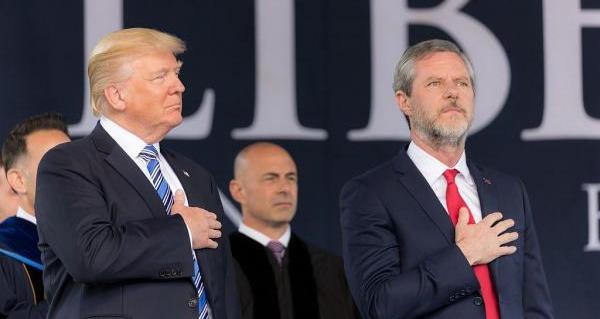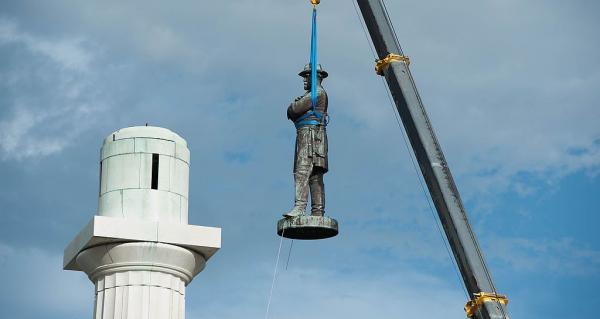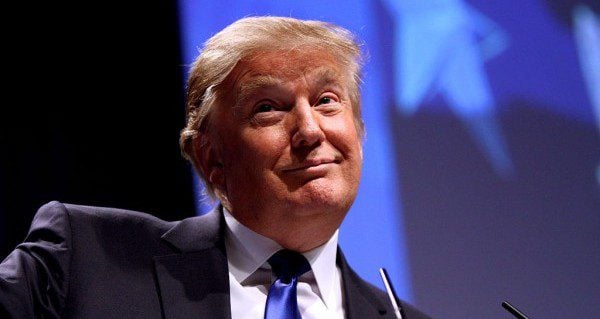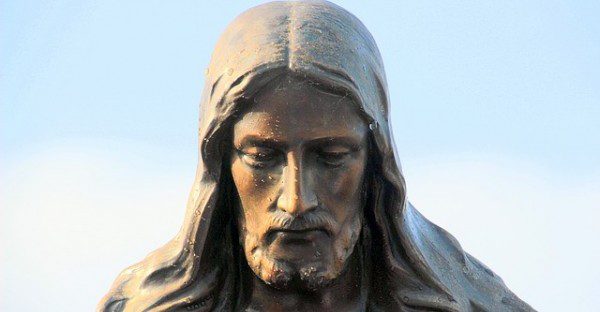What makes a true Christian? Who gets to determine that?
That’s the most obvious question raised by today’s very public brouhaha (of sorts) between Donald Trump and Pope Francis.
![By Benhur Arcayan (Malacañang Photo Bureau) [Public domain], via Wikimedia Commons](https://wp-media.patheos.com/blogs/sites/503/2016/02/Pope_Francis_Malacanang_7-e1455830186878.jpg)
The gospel, the Pope said is about building bridges, not about erecting walls.
Trump responded (as only Trump can) to the Pope’s suggestion with some strong words and a hypothetical scenario: But if ISIS attacks the Vatican, the poor Pope will surely wish he had prayed for a Trump presidency. Because, of course, Trump will destroy ISIS if he becomes president. In Trump’s words:
“If and when the Vatican is attacked by ISIS, which as everyone knows is ISIS’s ultimate trophy, I can promise you that the Pope would have only wished and prayed that Donald Trump would have been President because this would not have happened. ISIS would have been eradicated unlike what is happening now with our all talk, no action politicians…”
The “what’s a true Christian?” question is interesting and important, but that’s not the question I’m going to take on. (For that question, I defer to Kierkegaard’s suggestion that, given the lofty expectations given in the gospels of what Jesus calls for in disciples, it’s probably best for most of us not to claim to be Christians–becoming Christian, perhaps).
What I find buried beneath the comments of both the Pope and the Donald are two drastically differing eschatologies. That is, two different conceptions of history, the purpose of creation, and its ultimate end. Sandwiched between those big things are the more practical questions regarding how we understand power, how we understand God’s providence, and how we treat our neighbors and strangers.
Regular readers of this blog may know that I’ve been working again through Moltmann’s The Coming of God for a class I’m teaching called “Immortality and Hope.” Consider this passage and its implications for “The Pope v. the Donald”:
Politically speaking, history is always a struggle for power and for domination over other people and over nature.
The person who possesses power is concerned that history should continue to run its course toward the goal he has designed for it. He understands future as the prolongation of his own present, so that he swears by economic growth and scientific progress, and seeks the increase of the power he already has.
But the people who are dominated and powerless have no interest in the long-term prolongation of this history. On the contrary, they are concerned that it should find a speedy end. Better an end with terror than a terror without end, says a German proverb. Those who are dominated, hope for an alternative future, for liberation from present misery an deliverance from their helplessness.
Like all other knowledge, eschatology is always determined by its concerns, while at the same time it also determines those concerns.
It has been said many times in recent months, but at least part of the appeal of Trump is that he offers the prolongation of power to those who have sensed that they have lost power (money, prestige, influence, opportunity) while others have gained it. But the seemingly desperate attempt to cling to that power–and to be drawn in by the promise of securing that power–seems to often to come at the continued expense of those who are very much still on the “underside” of history.
Granted, the Pope has a lot of power. And globally speaking, a lot more power and influence than Donald Trump. As a free-church Protestant myself, I’ve long been uncomfortable with the papacy, the Vatican, and so on. (For that matter, the current pope seems fairly uncomfortable with it, too).
In any case, the thing about power is that one can always choose to use that power on behalf of the oppressed, the vulnerable, the disenfranchised.
Beneath the verbiage of today, the back and forth, illustrates–I think–that the way we think about power and use power is also connected to our understanding of who is ultimately in control of the world and how society’s most vulnerable are treated.
As for the second paragraph in that Moltmann quote:
But the people who are dominated and powerless have no interest in the long-term prolongation of this history. On the contrary, they are concerned that it should find a speedy end. Better an end with terror than a terror without end, says a German proverb. Those who are dominated, hope for an alternative future, for liberation from present misery an deliverance from their helplessness.
My point in quoting it here is not to suggest that Pope Francis is one of the “dominated and powerless.” Nor is it to suggest that he–or those who are truly dominated and powerless–would welcome a violent and speedy end, or would invite their brutal destruction at the hands of ISIS as an opportunity for an apocalyptic liberation to a better future!
It is simply to say that underlying the Christian eschatology represented by Pope Francis is a trust in God as the sovereign lord over history; not a trust in the powers of the world. This shift in allegiance allows for one to open oneself to the other in a posture of vulnerable embrace and sacrificial acceptance.
It’s about building bridges, not walls.
While eschatology is not typically a topic of political debate, it might often be rumbling underneath; and it can show up in public, from time to time.
For more theology posts and discussions, like/follow Unsystematic Theology on Facebook











